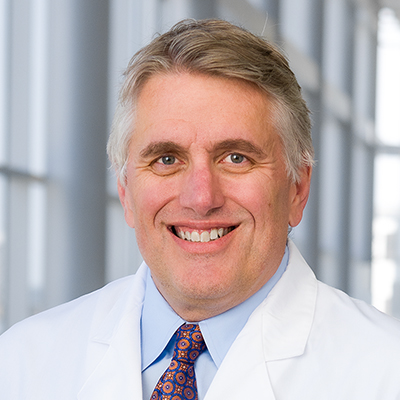New Patient Appointment or 214-645-8300

Adam Yopp, M.D. Answers Questions On: Gastrointestinal Cancer
-
Operating on someone’s liver: How hard is that to do?
-
Digging ditches, brick-laying, building houses, that’s hard. I come from a long line of laborers, so I’ve done all that. Doing the operation is actually the easiest thing we do. The hardest part of this job is the decision-making leading up to the surgery, and trying to determine what patients need and don’t need in their treatment. Just because you can do a particular operation doesn’t mean it suits the needs patients might have. The key is a multidisciplinary approach to cancer care where all the silos of treatment are broken down.
-
How did you decide on your specialty?
-
The first case I saw as a medical student was a procedure called the Whipple Procedure. They removed the head of the pancreas, and I thought it was an incredible feat of concentration and skill. From that point on, I was interested in hepatobiliary surgery. Then I spent three years in a lab doing research during my surgical residency. That furthered my interest in doing surgery in the right upper quadrant where the liver and pancreas sit.
-
You say you believe in being totally transparent with your patients. How do you do that when the news is not so good?
-
I don’t think physicians give patients enough credit. As physicians we need to give patients all the information that they need and, most importantly, set the expectations for their cancer care. Unfortunately, I don’t think physicians do a good job of this, whether out of fear or being seen as fallible. I think patients get frustrated when they’re not getting enough information. I think it’s important that we’re part of a team, the patient and myself, about making decisions and moving forward. I believe in laying all the cards on the table with my patients and having a joint decision about what we should do. I let them know that I’m going to be there, whether it’s good news or bad news.
-
What does the future look like for GI oncology?
-
I think in the next 10 years, there will be dramatic changes in how we treat patients with liver and pancreatic cancer. At Simmons Cancer Center, I think we’re at the cutting edge of taking concepts that work in the lab and translating them to advanced patient care. After all, the goal of basic science lab work is to kill cancer in humans, not in mice, and I think we’re starting to do that. With the help of the tremendous labs at Simmons Cancer Center, we’ve been able to take novel drugs from the bench to the bedside with remarkable results in liver cancer. In the next five to 10 years, we will hopefully be able to take these results and tailor a treatment for our patients based on tangible results and not the shotgun approach currently used. I’m extremely excited by the future where surgery and chemotherapy will be used to affect the lives of our patients in a meaningful way.